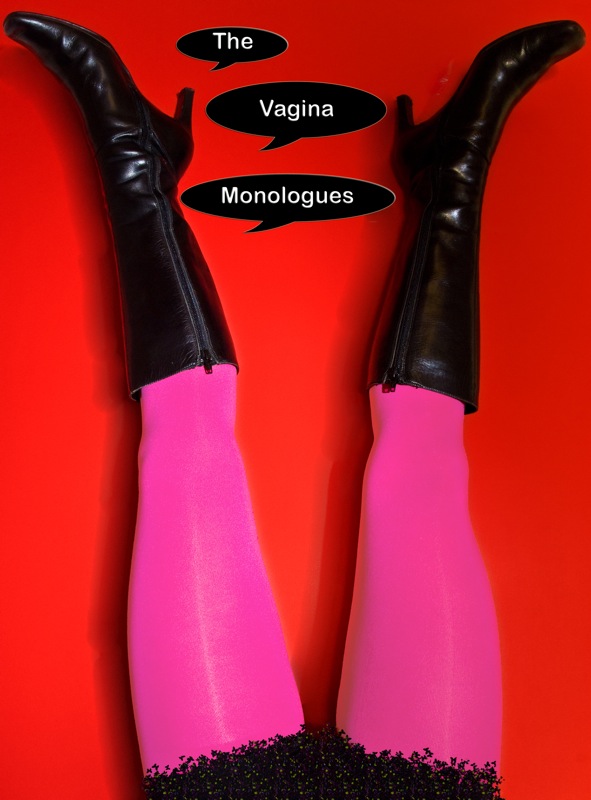The show must go on, as they say — until it’s gone on long enough.
On Jan. 14, the student-run Project Theatre group at Mount Holyoke College canceled its annual production of Eve Ensler’s play The Vagina Monologues, opting instead to write and produce a new show of its own.
The reason: Ensler’s 1996 play, made up of an annually updated collection of monologues about what it means to have a vagina, offers little voice to transgender women who don’t. Project Theatre’s new show, The Student Body, will put increased focus on stories from those women — a well-timed effort given the fact that Mount Holyoke began admitting transgender women last year.
Project Theatre hit a sour note, however, when it explained its decision via a campus-wide email. In that announcement, the troupe said that The Vagina Monologues “offers an extremely narrow perspective on what it means to be a woman,” and that performers felt “increasingly uncomfortable presenting material that is inherently reductionist and exclusive.”
The argument is strange. Sure, a theatre need not present a play that doesn’t fit with its mission. But how is that the play’s shortcoming?
Ensler heard the announcement. She said she was supportive of, but confused by, Project Theatre’s explanation. Her response, published in TIME Magazine, was both conciliatory and a bit chastising. “The Vagina Monologues never intended to be a play about what it means to be a woman,” she wrote. “It is and always has been a play about what it means to have a vagina. In the play, I never defined a woman as a person with a vagina.”
In other words: if you don’t like it, go write your own damn play. Happily, this is what Project Theatre is doing.
But that lingering accusation against The Vagina Monologues is troubling. It implies that a non-inclusive play is a faulty play. It conflates thematic focus with narrow-mindedness. And it suggests that an artist is accountable to someone other than herself.
She is not. Her voice is hers alone, even when it takes up a civic cause.
The truth offered by a work of art is simply its unique point of view. Your lack of representation in the arena of art, then, is mostly your responsibility, not someone else’s underachievement. The goal should be to hang your own offering up on the wall, not to take down someone else’s. We need more art, not less.
Getting heard isn’t easy. Art, like most cultural exchange, is freighted with imbalances of power. If you’re not a white male, it can be harder to secure the resources you need — funding, a space, an audience — to share your voice. And judgment, particularly from those unused to voices that don’t sound like their own, is often harsh, unfair, and uninformed.
We can find better ways to empower each other and collaborate creatively. But the swamp of institutional prejudices through which we have to slog can all too often often muddy this clear, simple vision.
Take the example of another contemporary show that is sometimes canceled for its peculiar point of view: Bloody Bloody Andrew Jackson. That satirical musical, which debuted at The Public Theater in New York in 2010 before moving to Broadway, has now been produced all over the country. It depicts President Jackson as a brooding, punk-rock misfit, and it lambasts his racist, murderous policies — particularly the Indian Removal Act of 1830, which evicted thousands of Native Americans from the South and marched them west of the Mississippi — with brash, sarcastic lyrics and big, sweaty riffs on electric guitar.
Last summer, playwright Rhiana Yazzie helped to organize a protest of a production of Bloody Bloody Andrew Jackson in Minneapolis. In an open letter, Yazzie wrote: “The truth is that Andrew Jackson was not a rockstar and his campaign against tribal people … is not a farcical backdrop to some emotive, brooding celebrity … Can you imagine a show wherein Hitler was portrayed as a justified, sexy rockstar?”
Actually, I can. It’s “Springtime For Hitler,” the demented musical whipped up by Mel Brooks as a plot device in his 1968 comedy film The Producers. That ode to Herr Fuhrer, authored in the movie by an earnest neo-Nazi, would, its producers expected, be shut down. But it becomes a surprise hit when the audience misinterprets it as a satire. Even in the case of The Producers, which centers on this hilarious accident, art serves best as conversation, not representation.
Bloody Bloody Andrew Jackson purports, winkingly, to sing Jackson’s praises. But its lack of a Native American voice is not a failing. It’s written by white guys, and it’s about the awful actions of white guys. Ensler is a tireless feminist, but The Vagina Monologues has never tried to represent all women — it tells stories about vaginas. And when you write a play, no matter what it’s about, it will be about you. Guaranteed.
Given the production history of the sexually candid Vagina Monologues, which has seen its share of controversy over the past 20 years, it is some comfort to know that the pressures preceding Project Theatre’s decision were internal, not external. I look forward to seeing The Student Body when it premieres on Mount Holyoke’s campus Feb. 12-14. And Ensler will be proud, I hope, to see these students find voices better suited to their stories — their own.•



